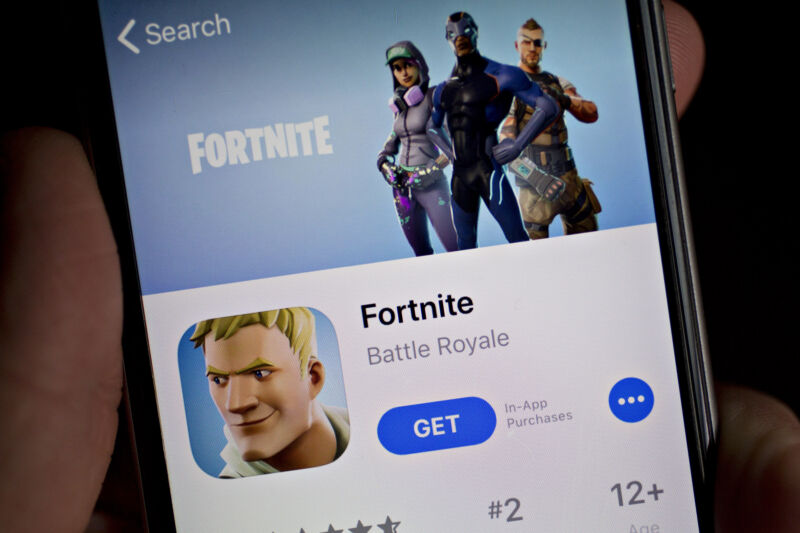
The legal declaration from Microsoft Gaming Developer Experiences General Manager Kevin Gammill comes in response to Apple's threat to halt Epic's access to software development tools used to update its popular Unreal Engine for use on iOS. That threat itself came after Epic tried to use its own payment system in the iOS version of Fortnite to get around Apple's 30-percent platform fee. That move quickly got the game pulled from the Apple App Store and led Epic to file a lawsuit in response.
Gammill says that any move harming development of Epic's Unreal Engine on iOS would hurt Microsoft's business, because "in Microsoft’s view there are very few other options available for creators to license with as many features and as much functionality as Unreal Engine across multiple platforms, including iOS."
"Ensuring that Epic has access to the latest Apple technology is the right thing for gamer developers & gamers," Microsoft's Head of Xbox Phil Spencer added while tweeting a link to the declaration Sunday.
Microsoft uses Unreal Engine for iOS games such as Forza Street, and Gammill says Epic's software is "critical technology for numerous game creators, including Microsoft... if Unreal Engine cannot support games for iOS or macOS, Microsoft would be required to choose between abandoning its customers and potential customers on the iOS and macOS platforms or choosing a different game engine when preparing to develop new games."

Developers currently working on Unreal Engine projects for Apple hardware would have to incur significant costs to start over, Gammill said, while developers with current Unreal Engine apps on iOS will be stuck with an engine that can't "take advantage of new iOS or macOS features, fix software bugs, or patch security flaws.
"In addition, this situation could bifurcate a game’s player base, such that gamers on iOS or macOS cannot play or communicate with friends or family who are playing on other platforms," Gammill added.
Chilling retaliation?
In court documents filed late last week, Apple argues that the "irreparable harm" Epic claims Apple is causing in this matter is actually the "self-inflicted... result of its choice to breach its agreements" with Apple. All of these problems can go away, Apple asserts, if Epic resubmits a version of Fortnite that complies with the App Store's standard in-app purchase rules (including Apple's 30-percent fee).
"The harm raised by Epic here is completely avoidable—here and now," Apple writes. "The asserted harm to Epic customers, whether of Fortnite or Unreal Engine, can be ended by Epic. All of the users and developers that Epic asserts are at risk are disadvantaged only because Epic’s scheme included breaching its agreements and running into court for relief. Epic has put customers and developers in this position, not Apple."
In its response filing, though, Epic asserts that any issues surrounding Fortnite should not affect Epic's ability to separately continue developing Unreal Engine for iOS. That's because Apple's Program License Agreement—which Apple says Epic breached with its Fortnite direct payment plan—is completely separate from its XCode and Software Development Kit agreement—which governs the testing and development of Unreal Engine on the platform.
"The breadth of Apple’s retaliation [against Unreal Engine development] is itself an unlawful effort to maintain its monopoly and chill any action by others who might dare oppose Apple," Epic writes in urging the court to block Apple's threatened action. "Epic asks only that the Court preserve the status quo so that Epic continues to have the same access to software, software development kits (“SDKs”), application programming interfaces (“APIs”) and other developer tools that it has today."
Strange bedfellows
Separate from Epic's battle, Microsoft is also waging its own PR war against Apple over the blocking of an iOS version of its xCloud game streaming platform. "Apple stands alone as the only general purpose platform to deny consumers from cloud gaming and game subscription services like Xbox Game Pass," Microsoft said earlier this month. "And it consistently treats gaming apps differently, applying more lenient rules to non-gaming apps even when they include interactive content."
But Microsoft and Epic make somewhat strange legal bedfellows. As recently as 2016, the two companies publicly sparred over similar platform control issues raised by Microsoft's Universal Windows Platform, which Epic called a "fiasco" and "the most aggressive move Microsoft has ever made." Epic and Microsoft publicly buried the hatchet last year, though, with Epic CEO Tim Sweeney telling VentureBeat "Epic loves Microsoft. Epic hearts Microsoft.”
Microsoft also exercises strict, iOS-style control over the software market on Xbox consoles and extracts a similar 30-percent fee for in-game items sold on the platform. But Sweeney has said these console markets are different from mobile platforms because of console-makers' "enormous investment in hardware, often sold below cost, and marketing campaigns in broad partnership with publishers." The Link LonkAugust 24, 2020 at 10:21PM
https://ift.tt/2QrpYgl
Microsoft backs Epic against Apple in legal fight over Unreal Engine on iOS - Ars Technica
https://ift.tt/2ZaIe2Q
iOS
:no_upscale()/cdn.vox-cdn.com/uploads/chorus_asset/file/22686894/backboneonexbox.jpg)
No comments:
Post a Comment